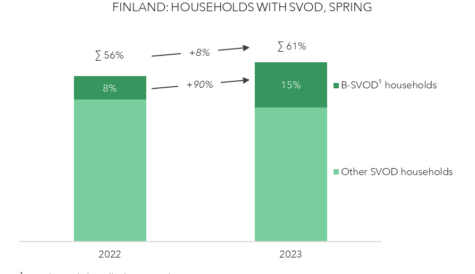
After more than 40 years of operation, DTVE is closing its doors and our website will no longer be updated daily. Thank you for all of your support.
Peacock spent 70% more on advertising in build up to launch than Disney+
 NBCUniversal’s late-in-the-day marketing push for its imminently arriving Peacock streaming service has been laid bare by a new report.
NBCUniversal’s late-in-the-day marketing push for its imminently arriving Peacock streaming service has been laid bare by a new report.
Advertising intelligence platform MediaRadar has examined the ad spend for Peacock and compared it to the same time period before the launches of both Disney+ and HBO Max. The report covers ad spend in print, online, YouTube, Snapchat and US National TV.
The firm found that, until recently, Peacock’s strategy mostly mirrored that of Disney+. Only in the two weeks leading up to the streamer’s July 15 launch did NBCU ramp up its marketing efforts, with Peacock’s advertising up 71% compared to Disney+’s build up in November 2019.
The report notes that a potential reason for Peacock being proactive ahead of launch is that the service has been available in early access for Xfinity customers since April – albeit without any of the service’s original content.
It also adds that Peacock has been struggling for brand awareness – as evidenced by a YouGov study – and that the increased spend is an attempt to rectify this.
By comparison, the report says that Disney+ was more aggressively marketed after launch – more advertising was done for Disney+ in the four weeks after its launch than in the four weeks prior to its launch – and that HBO Max was most advertised just prior to its May launch.
In total, the report found that US$45 million was spent on advertising by streaming services in the US in June and that the top 5 accounted for just over two-thirds of the total category spend.
Pushing towards its launch, Peacock was the third-largest advertiser in the category in June, behind Amazon Prime Video and Disney for its services Disney+ and Hulu. Peacock’s ad spend was ahead of AppleTV+ and Netflix for the month.
Peacock will launch on July 15 with free and premium tiers that offer between 7,500 and 15,000 hours of content.


